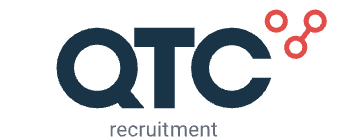Written by Rinesa - 5 Minutes reading time
Managing the expectations of the younger workforce

Every generation worries about the changing expectations of "kids these days." But the pandemic changed the labor market, and this new generation of young people entered with an advantage — more power and new demands.
Now, leaders are concerned with how hard it is to get people back into the office. When employees return, they're quiet quitting or giving the bare minimum. Leaders worry that people will need retraining to regain pre-pandemic productivity. Additionally, new hires and potential new hires are exhibiting unpredictable behaviour or ghosting far into the interview process. Leaders feel the only way to recruit and retain talent in this new environment is to put up with rising demands, shift to a remote or hybrid workflow, and implement the most popular perks and incentives of the times.
But managing the expectations of this younger workforce takes more than a prepackaged idea of what people want. What people want has changed. COVID happened, hybrid is happening, older generations are retiring, and the people coming to replace them are very different: The best thing leaders can do is be prepared. Staying open to input allows us to create an individualised approach that draws on what motivates each employee while staying agile to their changing needs.
Expect people to be different
Communication, socialisation and priorities have changed in the last two decades. In the past three years alone, we have undergone a radical transformation in how we live our lives, and everyone experienced that differently. A cookie-cutter approach to handling the expectations of a new generation won't work.
Instead, we should stay open to taking and giving individualised feedback through one-on-ones and try to act in accordance with their personal preferences. Remember that younger generations usually come into a job with less experience working for a boss. For many, the last environment where people had expectations of them was college, where professors and counselors could provide 24/7 feedback.
Moving into a new environment without that feedback, younger workers may find themselves lost, which can quickly lead to their dissatisfaction and searching for a new job.
Provide the forum and ask
Not sure how to start being the kind of leader that regularly welcomes and distributes feedback? You're not alone. To be honest, most leaders are not all that good at it. Even for me at Clearfield, it has been a learning experience.
We attempt to conduct one-on-ones weekly to assess progress against business objectives and projects – and to give our employees a forum to express their needs. After we understand who they are and what they want, we ask them questions to learn more. If our job as leaders are to take our employees to the next level, then the best way to get them there is by asking essential questions.
So, we use these sessions to ask questions like:
- This is your time — what are your goals for it, and how do you want to use it
- How does this feedback work for you? Is the timing right? The forum? My preparation?
- How do you feel about your work?
- How do you want to be recognised for your work?
- What's next? And how do I help make that happen?
When we provide a forum and ask our people what they want most from their role at our company, we have a better chance of meeting those expectations. Of course, expectations can change as people change, and our leadership teams at Clearfield are still figuring out the best way to provide this individualised support.
No one is perfect, and we all have to learn. But that's the beauty of establishing a mechanism that keeps us open to feedback: We have our ear to the ground, know sooner when what we're doing is no longer working, and can change to adapt.
Let them know their purpose
Everyone is different, but at the end of the day, we all want a purpose — doing meaningful work and understanding how we contribute to the company's goals. To meet the expectations of this new generation, we have to listen to their deeper needs and give them a role in shaping practices, policies, and pathways that help them achieve them.
When we offer them more control over their work and environment, it makes them more productive. In a 2021 Gartner survey of 3,500 employees, 65% said the pandemic made them rethink the role work should have in their lives; 62% felt a longing for substantial change, and 56% had a deeper desire to give back to society. Employees now want their employers "to recognise their value and provide value to them on a human level."Leaders can use their feedback sessions to ensure each of their employees has that understanding and can connect their work with the company's overarching goals.
So, how do we handle the new expectations of a younger workforce? Ask. Stay open to input and recognise that the best approach may differ from person to person. Make learning and advancement a part of people's jobs. When employees are interested in contributing more, leaders should welcome that ambition with pathways for them to get there. But we only learn of these ambitions when we ask. By getting our team members to consider these powerful questions, we have a better chance of ensuring sustained engagement in their roles and contribution to the company.
Are you finding it challenging to manage the new expectations of the younger workforce within your Life Science organisation? Experts at QTC Recruitment can help you attract and retain top talent that aligns with your organisation's values and expectations. Read more about how you can be helped here.
Also published on Entrepreneur.com
Want to stay informed about current Life Science and recruitment news on a regular base? Then register here for free.
